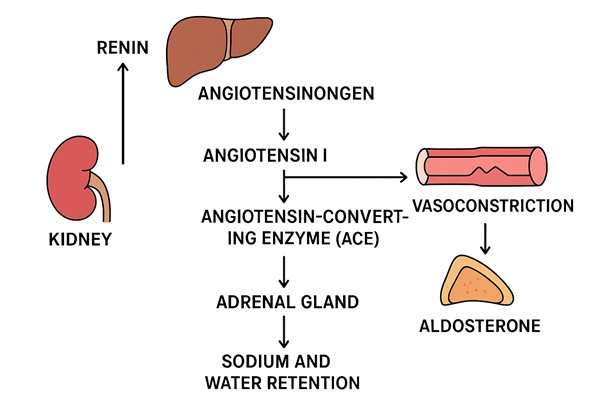Angiotensin converting enzyme (ACE) inhibitors
Angiotensin Converting Enzyme (ACE): Definition:Angiotensin Converting Enzyme (ACE) is a key enzyme in the renin-angiotensin-aldosterone system (RAAS) — a hormonal system that regulates blood pressure, fluid balance, and electrolyte levels. It plays a vital role in cardiovascular and kidney function by converting angiotensin I (an inactive peptide) into angiotensin II (a potent vasoconstrictor). Structure and … Read more
